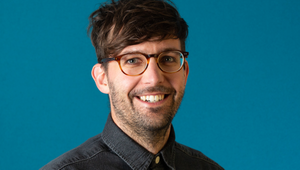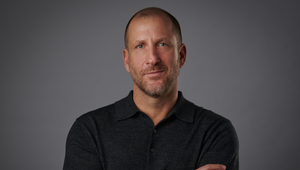
5 Minutes with… Bryony Beynon

From October 2024 the Worker Protection (Amendment of Equality Act 2010) Bill will strengthen existing protection for UK workers against sexual harassment. The new law places a duty on employers to take ‘reasonable steps’ to prevent sexual harassment. It’s a significant change that makes the work of timeTo even more relevant to every single person in the advertising industry.
timeTo is the UK industry initiative set up to tackle sexual harassment in advertising. Established by a coalition of three advertising and marketing bodies – Advertising Association, NABS and WACL – it combats sexual harassment in the industry through its code of conduct, helpline, campaigning and training. Earlier this year its education expanded to include bystander training – part of a move from raising awareness towards building action-oriented skills among advertising and marketing professionals.
Bryony Beynon leads timeTo’s training, developing and delivering a sexual harassment education and training programme to the industry and supporting a team of trainers since 2019. An activist against sexual harassment for over 14 years, she’s the co-founder of both Hollaback! London and the Good Night Out Campaign and has worked on training for the likes of Women’s Aid and Mental Health UK.
Having first met her when she led a training session he took in 2022, LBB’s Alex Reeves caught up with Bryony at this crucial time in the fight for safer workplaces.
LBB> You've had a 14-year career working in various organisations to fight harassment, sexual assault, rape, and other kinds of violence. What is your career story?
Bryony> My first ever job was actually in a tech B2B PR firm with clients like Virgin Media, before I got involved in grassroots activism and co-founded Hollaback! London, part of a global movement using online mapping and storytelling to end street harassment, way back when smartphones were first popularised. From there, I’ve been lucky to work in frontline organisations tackling gender-based violence in different forms – including as a specialist educator in Rape Crisis and domestic abuse services, training teachers, social workers and many many teenagers about consent, and consulting in different industries including healthcare and transport.
In 2014 I started my own: Good Night Out Campaign, we are focused on creating safer nightlife spaces. Each experience has given me more insight to challenge cultures of violence in different industries, which I bring to the advertising industry through my work with NABS and timeTo.
LBB> How have things changed in that time, when it comes to how we speak about these issues, as well as how organisations are trying to tackle them?
Bryony> No doubt, there has been a significant shift in how we talk about harassment and assault – in part due to movements like #MeToo and #TimesUp breaking the silence. Conversations that were once considered too “difficult” or taboo are now taking place in boardrooms and canteens. Organisations are also much more aware that a proactive approach is necessary, and they’re moving from reactive, one-off measures to really starting to understand long-term systemic change. However, while awareness has grown, there is still work to be done to ensure that this awareness is translated into real accountability and safety for all.
LBB> What brought you to NABS and timeTo?
Bryony> What drew me to the project overall was the commitment to using a strong evidence-based approach in designing training, which I built. Every session starts with some stats! There’s a clear commitment to make a tangible change in industries where harassment and sexism is almost a TV cliche it's publicly thought of as so ingrained. timeTo offers a chance to leverage the tools of active bystander training in a very specific context, as advertising culture sometimes involves blurred lines and very informal spaces. I saw the opportunity to really make a difference in how these workplaces approach harassment, creating more inclusive and safer environments.
LBB> How did you find your transition to working in the ad industry? Are there any pronounced differences that you noticed?
Bryony> The industry’s blend of creative culture and corporate structure, for sure. On one hand, there’s a casualness that can make boundaries harder to enforce, especially in social situations like client dinners or networking events. On the other hand, agencies are increasingly recognising that their workforce expects better – employees want to feel safe and supported, they will not stand for dodgy comments, for example, and expect meaningful action on harassment. What’s been most encouraging is seeing how ready people in the industry are to engage with training and be vulnerable in their worries and fears about the practice of being a bystander.
LBB> Can you speak about how timeTo has evolved and developed, and the progress it's made up to this point?
Bryony> Since its launch, timeTo has developed into a leading resource for preventing workplace harassment in the UK ad industry. Initially, we were focused on raising awareness and encouraging conversation, but have since started to bring in more action-oriented skills, particularly with the introduction of bystander training. We've seen real progress in how organisations are not just acknowledging the issue but also taking steps to make sure their employees feel protected. The commitment from big agencies, as well as independent ones, to embed this work has been incredibly promising.
LBB> What are your favourite moments from your experience conducting timeTo training?
Bryony> Some of my favourite moments come whenever I see that ‘aha!’ moment during a session – when someone suddenly realises that they CAN do it! Whether it’s through intervention, realising there are many ways to help that aren’t always ‘spectacular’ but sometimes are just about the small chat…or just setting a positive example. It's rewarding to see people who were previously unsure of how to react in uncomfortable situations leave with practical skills to step up and make a difference. I also enjoy the open discussions that happen during training – I guess it becomes clearer each time just how vital this work is.
LBB> How does your new Bystander Training work? What is it trying to address and why have you chosen the route you've gone down with it?
Bryony> Bystander training is about underlining our instincts and responsibilities to step in – whether by disrupting the situation directly, distracting, reporting what you witnessed or supporting the person affected afterward. Our training covers practical techniques for intervention, helping participants feel more confident. We speak about positionality and how race, gender and other identity markers can make us more or less assured about our role as a bystander and what’s the best approach. We chose this route because often people witness problematic behaviour but aren’t sure how to respond, or worry they will be made a target. In workplaces, that’s actually pretty unlikely, so cultures of open conversations and being ready to own mistakes if an innocent comment does go down wrong are also part of the picture.
LBB> The law changes on October 24th around sexual harassment as part of the Worker Protection Act. What do employers need to change to respond to this?
Bryony> Yes! So with the new laws, employers are going to need to be more proactive in their approach to preventing harassment. This means not just having policies in place but also ensuring they are being communicated and enforced effectively. Employers need to foster a culture where it's clear that harassment won’t be tolerated, and they need to train employees on what constitutes harassment and how to report it. Additionally, the law emphasises prevention, so companies should look into regular training and robust support systems for employees to raise concerns safely.
LBB> How is timeTo responding to it?
Bryony> timeTo is working to support organisations by ensuring they understand these changes and are prepared to implement the necessary measures. Our training already aligns with the new legal expectations, particularly around prevention and creating a safer workplace culture. We’re also adapting our resources to make sure that companies are not just complying with the law but leading the way in making lasting cultural change. We see this as an opportunity to encourage businesses to be proactive rather than just reactive.
LBB> What aspect of timeTo would you like to draw more people's attention to?
Bryony> Often, people think that dealing with harassment is solely the responsibility of HR, but creating a safer workplace is something everyone has to take part in, after all the workplace is nothing without its workers! So I really hope more organisations adopt the active bystander training. It’s a thoughtful and empowering space. When people intervene when they see something wrong, we can collectively shift workplace culture, sharpening our shared tools and confidence to step up and make a difference.













